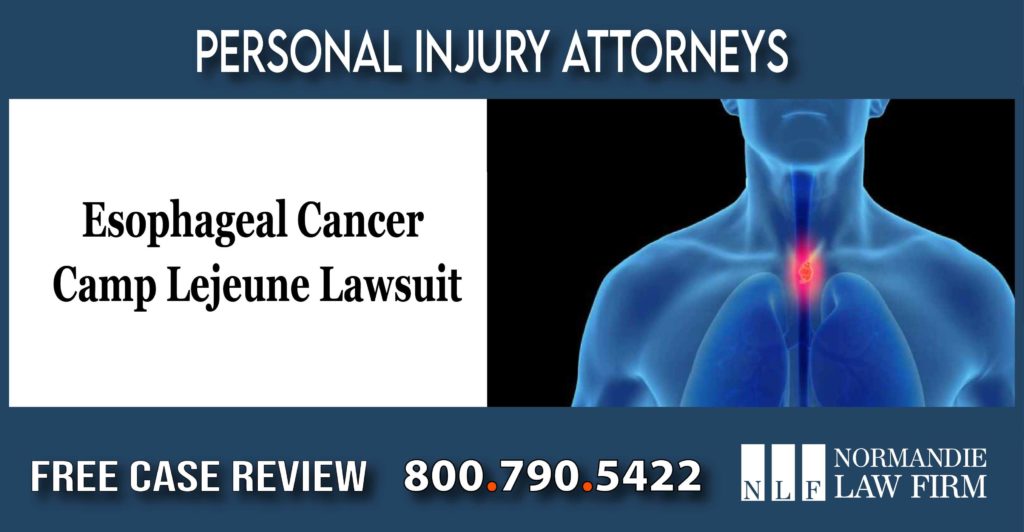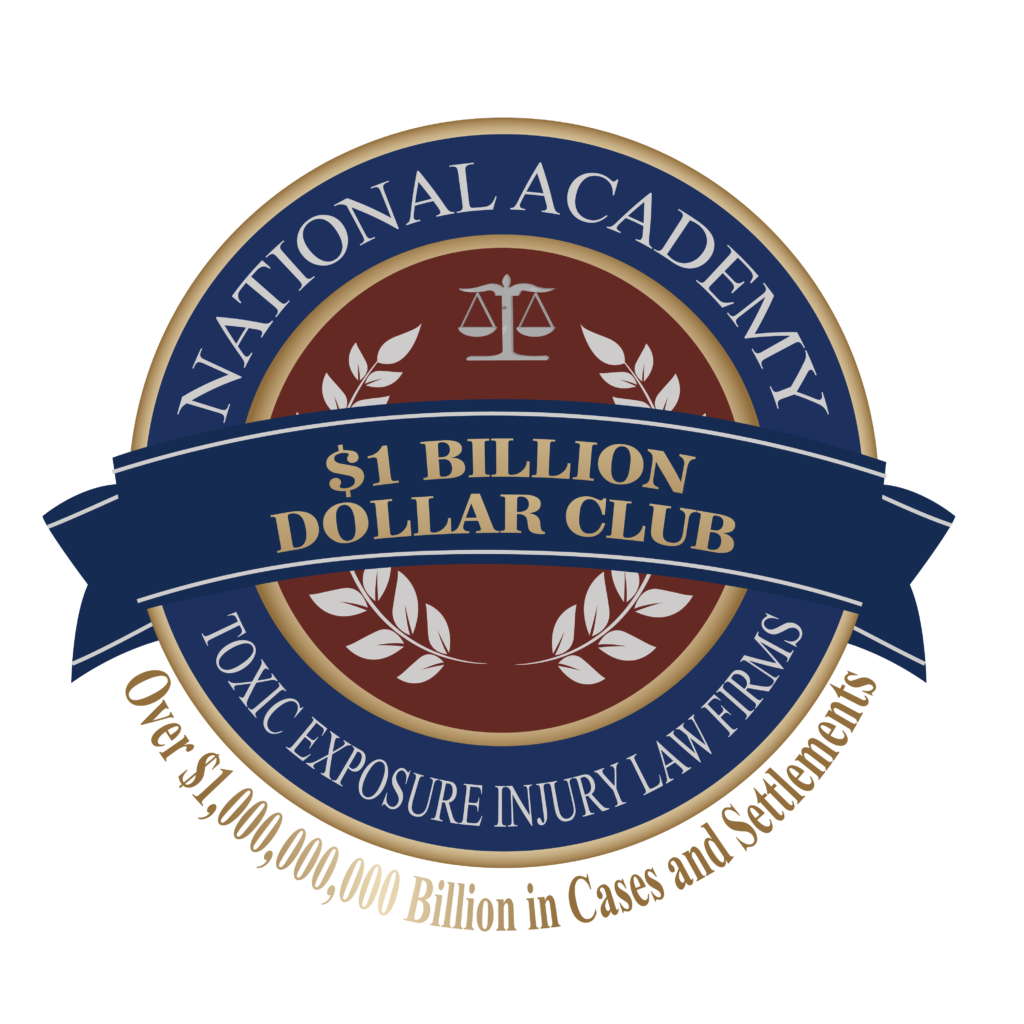
On August 2, 2022, Congress passed the Camp Lejeune Justice Act as part of the PACT Act, or the Honoring Our Promise to Address Comprehensive Toxics Act. The Camp Lejeune Justice Act allows anyone who lived or worked at the base from August 1, 1953, to December 31, 1987, for at least 30 days, exposed to the contaminated water and suffered injuries, to file a claim against the U.S. government.
The following week on August 10, 2022, President Biden signed the PACT Act into law, which means eligible claimants have a two-year window from that date to seek monetary compensation. There were over one million people who were exposed to dangerous chemicals through the water supply at Camp Lejeune military base in Jacksonville, North Carolina. Many of them developed severe health complications, including esophageal cancer.
If you or your loved one was at Camp Lejeune from 1953 to 1987 and were later diagnosed with esophageal cancer, please give us a call at our law firm. We can advise you of your legal rights and take immediate action to recover your damages, such as medical expenses, pain and suffering, lost wages, disability benefits, and cost of mental health counseling.
What is Esophageal Cancer?
The esophagus is a long, hollow tube that connects your throat to your stomach. Esophageal cancer is a disease that affects the cells in this area, and it is much more common in men than women. It is the sixth most common cause of cancer in the world, and most patients do not experience symptoms early on. However, you should see a doctor right away if you begin to experience the following symptoms, as they may be signs of esophageal cancer:
- Dysphagia (difficulty swallowing)
- Unexpected weight loss
- Pain, pressure, or burning in the chest
- Heartburn or indigestion that gets worse
- Persistent coughing or sore throat
As esophageal cancer advances, patients can suffer from a variety of complications, including severe pain, bleeding in the esophagus, and difficulty eating or drinking. Several types of treatments are available, such as chemotherapy, radiation therapy, targeted drug therapy, and surgery to remove portions of the esophagus. Your doctors will choose the best course of treatment based on your overall health, the type of cancer cells you have, and what stage your cancer is at.
This devastating disease can be caused by a variety of factors, such as smoking, drinking, and having gastroesophageal reflux disease (GERD). However, it can also be caused by exposure to high levels of toxic chemicals, like the ones found in the water supply at Camp Lejeune. In the next section, we will go over what these chemicals are and how so many people were exposed to them during their stay at Camp Lejeune military base.

Toxic Chemicals in the Water at Camp Lejeune
During the period of August 1, 1953, to December 31, 1987, several toxic chemicals were regularly leaked into the water at Camp Lejeune. These chemicals include:
- Tetrachloroethylene (PCE or PERC)
- Trichloroethylene (TCE)
- Benzene
- Vinyl Chloride
As for where these toxins came from, there were many sources, including fuel tanks that leaked carcinogens like benzene. PCE and PERC chemicals came from a nearby dry cleaner, and reckless disposal of industrial waste also contributed to contaminants in the water supply. Over one million residents, workers, and visitors took in these chemicals through their drinking water, and many of them developed esophageal cancer as a direct result.
Unfortunately, these victims received no help from military officials, who chose to hide the problem decade after decade. This act of negligence by the government will no longer be tolerated thanks to the PACT Act, and we are proud to join victims of esophageal cancer in their fight for justice.
I was Stationed at Camp Lejeune and I have Esophageal Cancer. What are the Steps I need to take?
If you were at Camp Lejeune and are currently suffering from esophageal cancer, speaking to a lawyer right away is the most important step you can take in a lawsuit against the federal government. We can explain your right to sue under the terms of the Camp Lejeune Justice Act. We will also discuss the extent of your physical and emotional damages and use that information to calculate a fair settlement. Then, we will start the process of gathering evidence for your case so that your claim can be submitted as soon as possible.
How do I know if I’m Eligible for a Lawsuit?
To be eligible for a Camp Lejeune lawsuit, you must have lived or worked at Camp Lejeune for 30 days or more during the years of 1953 and 1987. You do not have to be a former military member, by the way. Civilians, contractors, and visitors also qualify as long as they spent a minimum of 30 days at the military base during the period of contamination. Family members of deceased victims can also file for wrongful death compensation, as long as the decedent meets the conditions previously mentioned.
However, those who were dishonorably discharged or family members of a dishonorably discharged individual will not be eligible for a Camp Lejeune lawsuit.
Where is the Lawsuit Filed?
Camp Lejeune lawsuits are under federal jurisdiction, so you will need to file your lawsuit with the U.S. District Court for the Eastern District of North Carolina. This requirement is the same whether you are filing a personal injury claim, class action lawsuit, or a wrongful death lawsuit. This is just one of many complications that are involved with these cases, which is to be expected when the U.S. government is involved. We can take care of all the necessary work associated with the filing of your lawsuit and make sure that you are properly compensated for your losses as a Camp Lejeune water contamination victim.
Should I Join a Class Action Lawsuit or should I File my Own Individual Lawsuit?
These cases potentially involve hundreds of thousands of victims, meaning there are many people who are suffering from the same illness. It’s more than likely that a class action lawsuit will be initiated by other esophageal cancer patients that were harmed by contaminated water at Camp Lejeune. One of our attorneys can go over the benefits of a class action and help you join one of these lawsuits in the future. Then again, perhaps it’s in your best interest to file a lawsuit on your own. Weighing your options with advice from an experienced attorney is the best way to choose the right course of action for your case.
Is there a Time Period to File a Lawsuit – Join a Class Action?
Camp Lejeune lawsuits have a strict statute of limitations according to the provisions of the Camp Lejeune Justice Act. Claimants who have been diagnosed with esophageal cancer and family members of deceased esophageal cancer victims have two years to seek compensation from the signing date of the PACT Act (August 10, 2022). If you were at Camp Lejeune during 1953 to 1987 but haven’t been diagnosed yet, you have two years from the day when you receive your diagnosis.
Regardless of your situation, please contact our office without delay. If you do not file your lawsuit within the statute of limitations, you may permanently forfeit your right to monetary damages.

Average Case Value for Esophageal Cancer Diagnosis Camp Lejeune Lawsuits
Case values for Camp Lejeune lawsuits will vary greatly, since there are so many factors that will affect the amount you can receive. However, we can make a few predictions based on mass torts with similar circumstances. Lawsuits filed by cancer patients, as well as those with Parkinson’s disease, will likely bring in the highest settlements. We expect to see quite a number of payouts in the range of $250,000 to over $1 million with these cases. Many wrongful death claims will also have high case values, as you are claiming all the financial and emotional losses that result from the death of a family member. There is also the emotional trauma of losing a loved one prematurely due to a painful disease that could have been prevented.
However, these estimates are not accurate reflections of what you can receive from your own Camp Lejeune lawsuit. For an approximate value of your case, schedule a free consultation with one of our attorneys.
Length of Time to Settle a Camp Lejeune Esophageal Cancer Lawsuit
Along with the value of your Camp Lejeune case, you most likely want to know, “How long does it take to settle these cases?”
Though we cannot foresee an exact amount of time that it will take to resolve your case, the U.S. government seems willing to settle these claims as fast as possible. Having said that, the federal agency in charge of these cases will have a staggering number of claims to go through. With that in mind, we will do our best to recover your settlement in 6 to 8 months after your claim is submitted. But if you have an especially complex situation, you may need to proceed with a lawsuit and wait for jury’s verdict, which can take two years or more.
Speak to a Camp Lejeune Esophageal Cancer Diagnosis Attorney
Esophageal cancer is a painful and debilitating disease that often goes undetected until it’s at an advanced stage. It’s a terrifying diagnosis for anyone to receive, but the impact is even worse when the disease could have been prevented. For over 3 decades, those who were injured by or died from water contamination at Camp Lejeune were ignored by the U.S. military.
We are thoroughly committed to representing you and your family, and fighting for the compensation you’re entitled to. As a sign of our commitment, we will never charge upfront for any of our services. With our Zero fee guarantee, the only way we get paid is by recovering your settlement award. That means there is never any risk to your finances when you choose our law firm.
If you’re ready to take action in Camp Lejeune esophageal cancer claim, please schedule a consultation at your earliest convenience.
Other Pages on Our Website Related to This Topic
Can Visitors to Camp Lejeune Participate in the Water Contamination Lawsuit
What is the Required Time Spent at Camp Lejeune to Participate in Water Contamination Lawsuits
Do I have to be Former Military to be a Part of the Camp Lejeune Water Contamination Lawsuit











